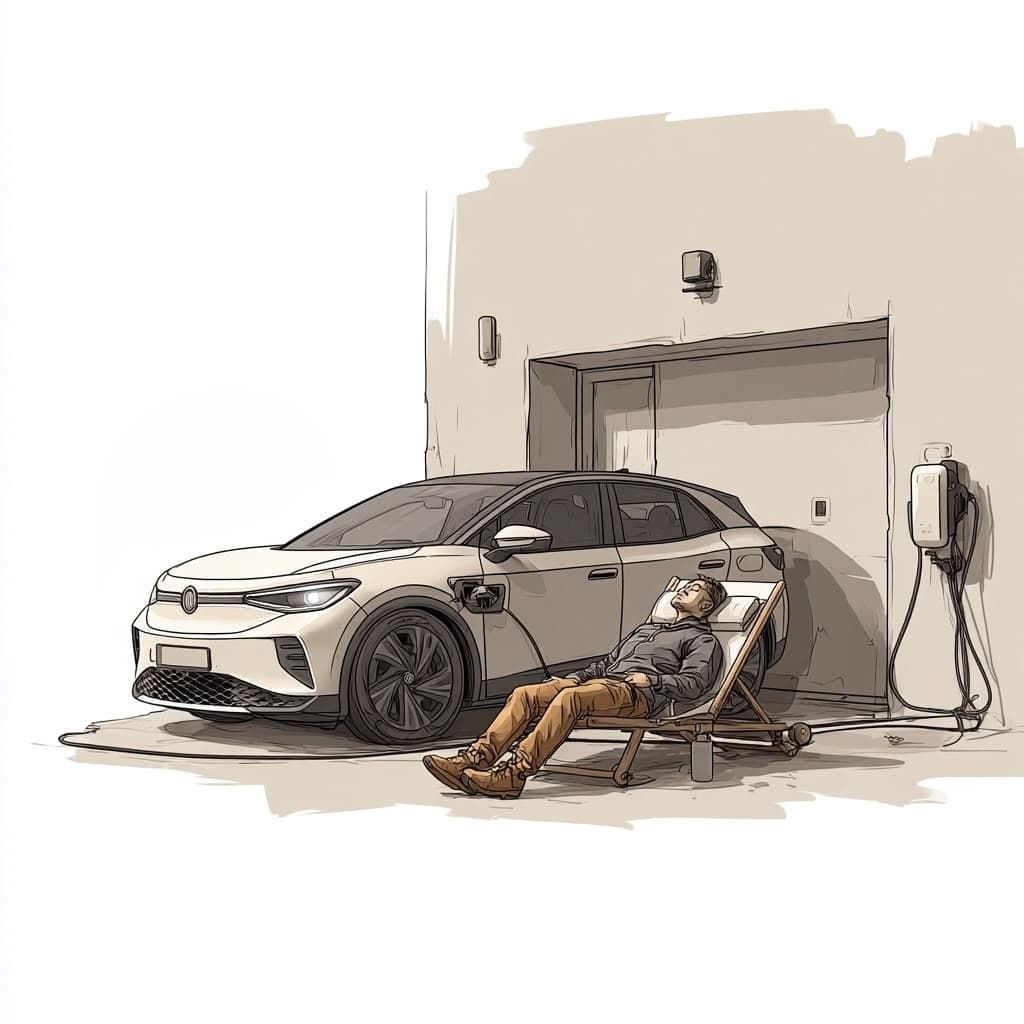EV Public Charging: Stations and Prices
The charging network in New Zealand is not a single utility; it comprises multiple operators and payment systems.

Public charging operators in New Zealand
Public charging stations are managed by different operators. To charge your vehicle, you will need to use an app (except for Plug and Save - accepts contactless payment).
Nationwide fast (> 150 kW) chargers
Smaller operators
Plug and Save
Some DC chargers in North Island. Accepts paywave. Can also use the Nova Charge Hub app.
In the Wellington region, Thundergrid manages a small selection of chargers.
Public charging prices
If charging at an AC charging point, you can predict the time and cost using the calculator. Note that some Tesla superchargers are open to other vehicles (not just Tesla).
| Charging Network | Price per kWh (AC) | Price per kWh (DC) | Fees | |
|---|---|---|---|---|
| ChargeNet | $0.45 | $0.85 (under 150 kW) $0.90 (over 150 kW ) $1.15 (see below) | Idle fee: $1 / minute* | |
| Z Energy | $0.88 | |||
| BP | $0.80** | |||
| Tesla Supercharger | $0.70 to $1.15***** | Congestion fee: $1 / minute | ||
| Plug and Save | $0.75 | |||
| OpenLoop | $0.25 - $0.50 | |||
| We.EV | $0.70 | |||
| Hikotron | $0.50 | |||
| Zero | $0.50 | $0.80 **** Varies (typically $0.25 / kWh + $0.15 / minute) | ||
| Jolt | Free*** | $0.47 | $1 / minute |
* Chargenet: 5-minutes free before an idle fee
** BP variable pricing: some BP charge points may offer lower prices during off-peak times.
*** Jolt: Free for first 7 kWh.
**** Zero: In Wellington City Council area: DC price is $0.25 / kWh + $0.15 per minute. In Hutt City Council area: DC price is $0.31 / kWh (and $0.15 / minute idle fee)
***** Tesla: Lower prices for Tesla drivers, higher prices for non-Tesla vehicles. Check app for pricing. Congestion fees: If you're charging past 80% OR your charging sessions finished AND the supercharger block is busy.
Some ChargeNet chargers are $1.15/ kWh - these are typically in small towns, or in remote places.
Partnerships with energy companies
Several energy companies collaborate with charging networks, bringing discounts and unified payment options.
Meridian Energy + Zero
EV Plan offers six months of free use of the Zero charging network (and six months of free home charging - capped at $35/month). For new customers (more).
Genesis Energy + ChargeNet
EVerywhere addon: pay your at-home rates for any ChargeNet public charger (more).
Contact Energy + BP Charge
60-70% discount on BP fast chargers (between 7-9am and 4-6pm). 10% discount outside these hours. For Contact residential customers only. (more).
Octopus Energy + Add-to-bill
Octopus energy customers can have all ChargeNet and OpenLoop transactions integrated into one Octopus monthly bill (more).
Electric Kiwi + Add-to-bill
All ChargeNet transactions can be added to one monthly Electric Kiwi bill (more).
EV charging stations in New Zealand
Orange = DC fast chargers. Green = AC slower chargers.
How do you find the nearest charger?
-
EVRoam (NZTA)
Maintains maps of fast chargers. -
Plugshare
Extensive coverage of all kinds of chargers. -
ABRP
Plan a road trip that includes the best charging stops.
Both Google Maps and Apple Maps have charging stations.
For a statistical overview of New Zealand's charging network, visit the EECA EV Charger Dashboard.
How do I charge an electric car at a public charging station?
-
Park so the cars charging socket is near the charging station.
-
Use the app to scan the code on the charging station.*
-
Take the charging cable and plug it into the car.
Monitor the charging status with the app. Many charging providers can also supply a fob (small plastic RFID tag). This can be waved in front of the charger to start a session (instead of using the app).
Slower AC 'destination' chargers can be a little different. Some of them require you to keep a cable in the car.


